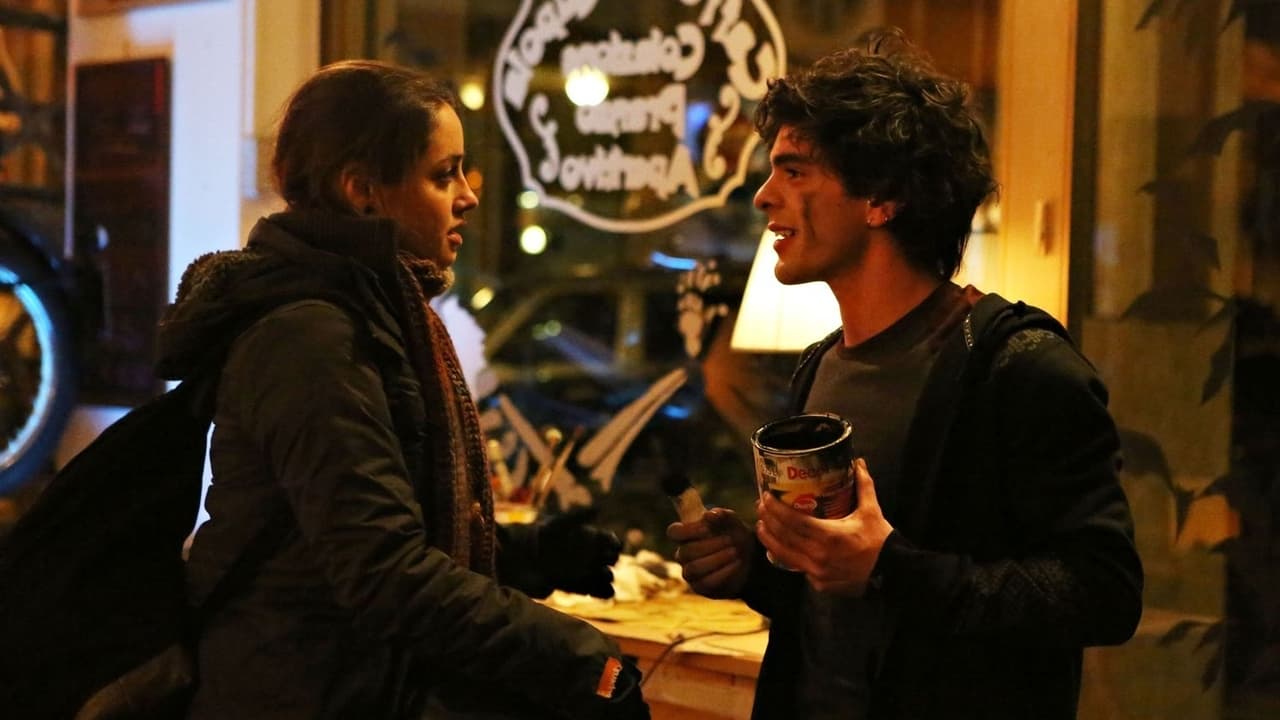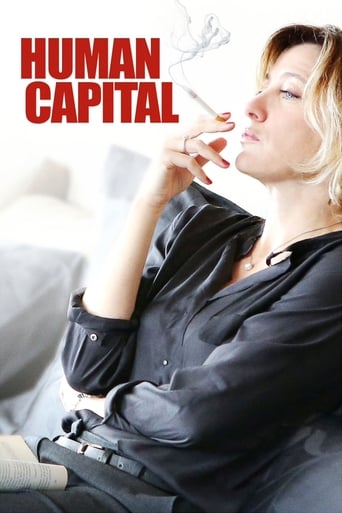Redwarmin
This movie is the proof that the world is becoming a sick and dumb place
Marketic
It's no definitive masterpiece but it's damn close.
Stellead
Don't listen to the Hype. It's awful
Fleur
Actress is magnificent and exudes a hypnotic screen presence in this affecting drama.
The_late_Buddy_Ryan
An involving drama from Italy, relocated from someplace like Greenwich, CT (the setting of the novel it's based on) to somewhere near Lake Como—no problem there… It takes place during the mini–financial crisis of 1997, and it's one of those slightly tricky movies where the main characters each get a "chapter" to themselves, so the tone can vary from scene to scene. First, an overeager investor plays up to a slick hedge-fund guy (Fabrizio Gifuni of "The Best of Youth") when their teenage kids start dating; this comes across like a broad Alberto Sordi comedy from the 60s. Next, the hedge-fund guy's regretful wife, a former actress (a great performance by Valeria Bruni Tedeschi), tries to reimagine her past while she tours a derelict theater, a haunting scene that recalls Fellini… Finally, picking up from a trigger event in the opening chapter—a cyclist is run off the road by a speeding SUV—the investor's intense teenage daughter (a great performance by Matilde Gioli) tries to make everything right, and almost succeeds. This "chapter" is played pretty straight, and it moves right along. There's one of those moments where you may ask yourself, "Why would she…?" (the only possible answer being "Because if she didn't, there wouldn't be a movie!"), and the ending may seem a little rushed, but otherwise the pacing's pretty tight, and, unless you're a raving free-marketeer, the social commentary is right on the money. Interesting that movie plots can be outsourced now, along with everything else….
Lucas Versantvoort
If you've read anything at all about Il Capitale Humano, you might have stumbled on words like 'whodunit'. This'll give you the impression you're about to watch a Miss Marple episode and while this is somewhat the case, it's also quite far removed from the truth.The film's structured in four chapters. The first three show the same timespan from differing points of view while the fourth functions as the denouement. There's a prologue: a working man cycles home late at night and is driven off the road by a driver who quickly tries to pass by him. The cyclist lies there with a serious head injury, helpless. Some time before that, we meet Dino who's driving his daughter Serena to a friend, Massimiliano, the son of a rich businessman, Giovanni. While they disappear off-screen, we follow Dino in his desperate attempts to befriend the head of the family so he can close a business deal with him. In the next chapter we follow Giovanni's wife, Carla, who's has to give up a lot to live her comfortable live, but finds an opportunity to reignite her past passions and interests. The third chapter shows what Serena's been up to and everything comes together in the final chapter, aptly titled Il Capitale Humano.Needless to say, the first three chapters are structured like a mystery. The mystery of who's responsible for the accident is slowly uncovered, but it's not really the central theme. In the end, it's not a question of 'whodunit', but the dynamics between these characters and their positions in society and relative to each other. In this sense, it feels more like an Iñárritu film (Babel, etc.) in that there's a single incident that causes a butterfly effect, drastically altering the lives of many.In the end, it's a great tragicomedy about greed and modern life, admittedly overly familiar themes here packaged into a cinematically satisfying whole. The film is particularly aware of the great irony of money being perceived as the way to happiness (though the film thankfully doesn't fall into the trap of showing the happy poor/middle class and the unhappy rich, a trap Woody Allen fell into when he made Blue Valentine). This is particularly apparent in a scene towards the end where Dino does something drastic for the sake of his and his family's financial future, an act that will have dire consequences for his daughter. Most characters, especially parental figures, seek to make money out of the conviction it'll be the end of their (and others') problems; instead, only more problems are created. The very term 'human capital' exemplifies this. How can a human being and his situation be translated into monetary value? Il Capitale Humano has the answer.
writers_reign
Knowing nothing about this other than it featured Valeria Bruni Tedeschi that was all that was needed to sell it to me. I've known, admired, and probably been a little in love with Valeria for several years on the strength of her performances in things like Marion Vernoux's Rien a faire and here, once again she is back to what she does best, playing fragile and vulnerable and beautiful with it. By pure coincidence I got hold of a DVD of her third film as writer-director-actress Un Château en Italie on the same day I watched this so I got a double shot of Tedeschi. Although I went for Tedeschi the film wasn't exactly chopped liver; okay, derivative, with more than a touch of the Rashomon's about it as a tragic accident is seen through the eyes of several protagonists with the truth that has eluded us revealed in the final segment. Along the way there are swipes at Ponzi schemes in all but name, capitalist societies, the dark side of Italian life just for starters. Certainly holds the interest.
simona gianotti
I went to see this movie mainly because it was shot in surroundings I know very well (the surroundings of Varese, in the north of Italy)and was more curious than interested. In the end, I had to say I saw a good movie, with a good photography but also a convincing story, based on an American novel, but fit for a movie which lies between a thriller and a social portrait, showing some evils of contemporary Italy. The splitting of the story into four chapters, seen from the point of view of three characters, plus a final chapter, may not be that original but works effectively and keeps the viewer's attention alive for almost two hours. So, considering the mediocrity of Italian contemporary cinematography, it is a good product and I also appreciated the performances of the whole cast, with Fabrizio Bentivoglio and Fabrizio Gifuni at their best. In my country the movie was criticized for pointing the finger at the north of Italy as the source of contemporary decadence: on the whole, besides its ideological orientation, I found it more entertaining than socially committed or politically sided.

